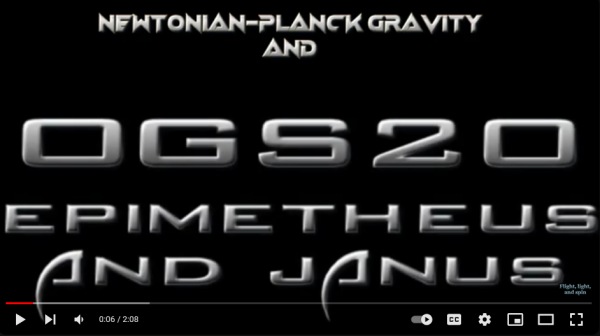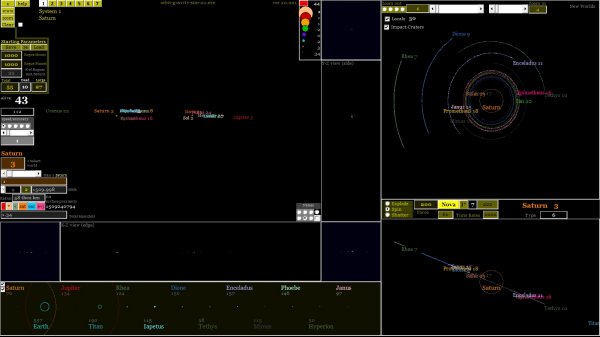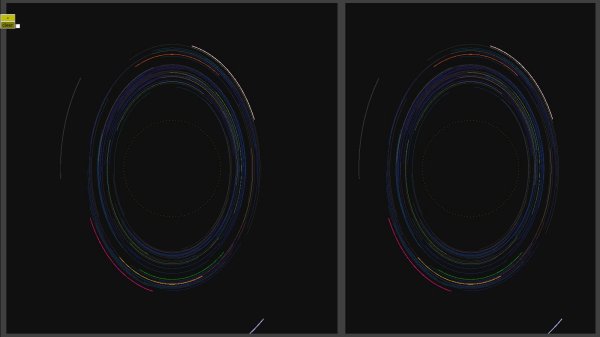The
object of this gravity simulation was initially to demonstrate
the delicacy of the orbital structures of Saturn's rings.
But then I discovered the incredible intricacy of the orbits
of Epimetheus
and Janus.
So most of the Scenarios are focussed on those two. But the
premise is still to properly analyze Saturn's entire gravitational
structure in the context of the solar system. I shall have to
get back to this again some time.
One can introduce rogue worlds into this simulation, to disrupt
the orbits of the moons and rings. Bodies can also be destroyed
by exploding them; then see if that debris forms 'natural' orbits,
impact craters, eccentric orbits, or get kicked out the solar
system as rogues for other star systems.
So one aim of this sim, is to be destructive to the solar system,
to the extent that the law of gravity is supposed to then stabilize
it again...
The number of bodies in the rings slows down the simulation
exponentially, as to be expected. So on my little 2024
AD pc, its a bit sluggish if you make add lots of astroids to
the rings. But no simulation is ever going to accomodate every
little detail. This algorithm is to explore the dynamics of
gravitational evolutionary structures specifcally the marvels
of Saturn.
To what extent do orbital dynamics result in a nice neat solar
system like ours?
Most especially the intricacy of the Saturn system. The nearest
pair of moons to Saturn that have their own orbits, get as close
as only 2000km apart.
And yet the orbital intricacy of Janus and Epimetheus defies
any attempt to put it into words. That orbital conundrum alone,
was sufficient reason to reconstruct this algorithm to that
alternative purpose, so I am going to have to come back to that
original purpose at a later date, hopefully.
Saturn's moons are packed up so tightly, even the slightest
disruptive rogue moon will result in a very untidy system that
just gets more and more untidy as time goes by...
Is someone or some unknown force out there keeping our solar
system nice and orderly?
Are Saturn's rings and moons an ancient mining operation??
OGS20 has an accuracy of about 99.99%.
OGS15 has an accuracy of exactly 99.9999999978%
as regards the Perihelion Precession of Mercury's orbit.
For the full 3d-n-body-gravity thesis,
try this:
www.flight-light-and-spin.com/n-body/gravity
;-j


